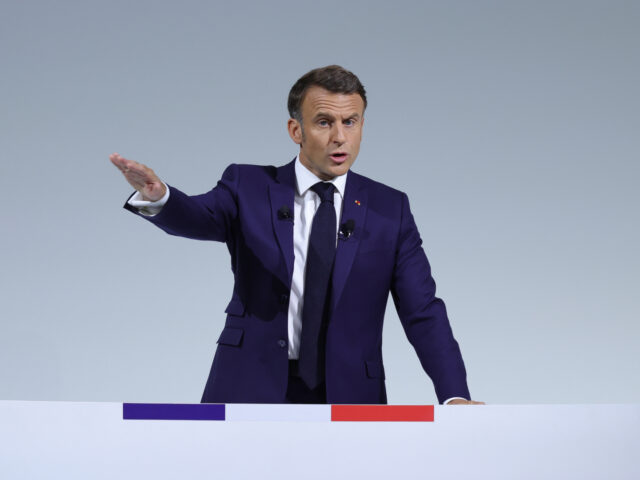French President Emmanuel Macron excoriated the Les Républicains leader Éric Ciotti for supporting an election pact with the populist National Rally party in the snap election he called after getting trounced in the EU elections.
In a rare press conference, an apparently agitated Macron snapped at Ciotti, Le Figaro reports, for turning his back on the “legacy of General (Charles) de Gaulle” in doing a “deal with the devil”, in reference to the Marine Le Pen’s National Rally (RN), with whom the Les Républicains leader backed an alliance with on Tuesday against Macron.
The move by the center-right leader sent shockwaves throughout the political establishment, sparking backlash from the far-left, the Macronists, and even many from within his own party, who believe that it is beyond the pale to pair with Le Pen and break the cordon sanitaire surrounding the party.
Ciotti argued that the Macron government has failed the country and the left is too radical, therefore, the only reasonable party to partner with and maintain its influence would be the National Rally.
UPDATE 1700 BST — Ciotti’s Own Party Moves Against Him, But He Refuses to Stand Down
The centre-right Les Républicains have voted to expel their leader Éric Ciotti on Wednesday afternoon amid the backlash for suggesting an electoral pact with Marine Le Pen’s National Rally. “We have just unanimously excluded Eric Ciotti from our political family. He is no longer a Republican,” the party said in a statement.
However, Ciotti has claimed that those seeking to oust him broke party rules and therefore said that he will not resign. He said: “The meeting organised this afternoon was implemented in flagrant violation of our statutes … None of the decisions taken at this meeting have any legal consequences… I am and remain the president of our political party, elected by the members!”
The original story continues below
Should the new centrist-populist alliance hold, it could have significant ramifications for the French political landscape. According to early surveys for the snap legislative election on June 30th and 7th, Le Pen’s party is currently on pace to pick up a relative majority in the National Assembly, but with the support of the Républicains, an absolute majority could be attained.
This would force Macron to accept National Rally president Jordan Bardella as his prime minister in a “cohabitation government” or resign and trigger an early presidential election.
Macron has vowed not to resign whatever the outcome of the snap election brings, yet a majority of the French people believe that he should step down if he is defeated once again by the National Rally.
A survey conducted by CSA for broadcaster Europe 1 found that 57 per cent of the French people would want President Macron to resign under this scenario.
Mr Macron is currently serving his second and final term as French president, with his natural term in office set to conclude in 2027. Explaining his rationale for calling for a snap election — an unprecedented move that did not need to happen — Macron claimed that he called for the snap vote to prevent Marine Le Pen from becoming president in 2027.
“I do not want to give the keys to power to the far right in 2027,” he said. “I fully take responsibility for starting this process of clarification.”
In a rather tepid pitch to the public to continue to back him, Macron said: “We aren’t perfect… but we’ve got results,” arguing for the people to back his “centrist, progressive, democratic and republican bloc” over Le Pen.
Macron attempted to draw lines between himself and RN on foreign policy, claiming that the Le Pen party wanted to “leave NATO” and was “ambiguous” on Russia.
At the outset of the war in Ukraine, the French president represented one of the leading voices advocating for the two sides to sit down for peace talks, however, this has since changed, with Macron now consistently pushing for escalations from the West, including sending French troops to the battlefield.
On the other hand, Le Pen, who has long been considered one of the more pro-Russian politicians in Europe, has since moderated, and now consistently expresses support for Ukraine, although she has criticised the hardline approach taken by Macron, which she has warned could spark a broader conflict.

COMMENTS
Please let us know if you're having issues with commenting.